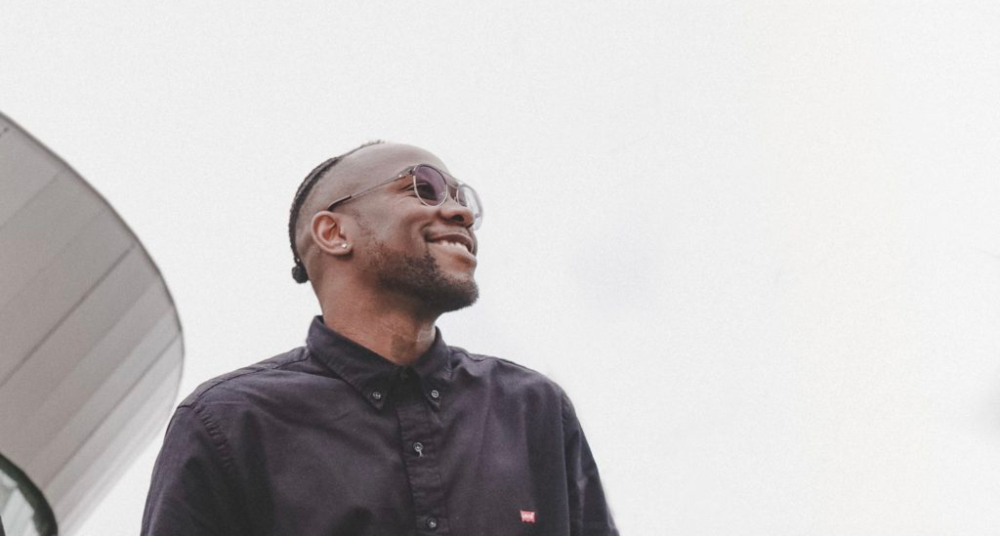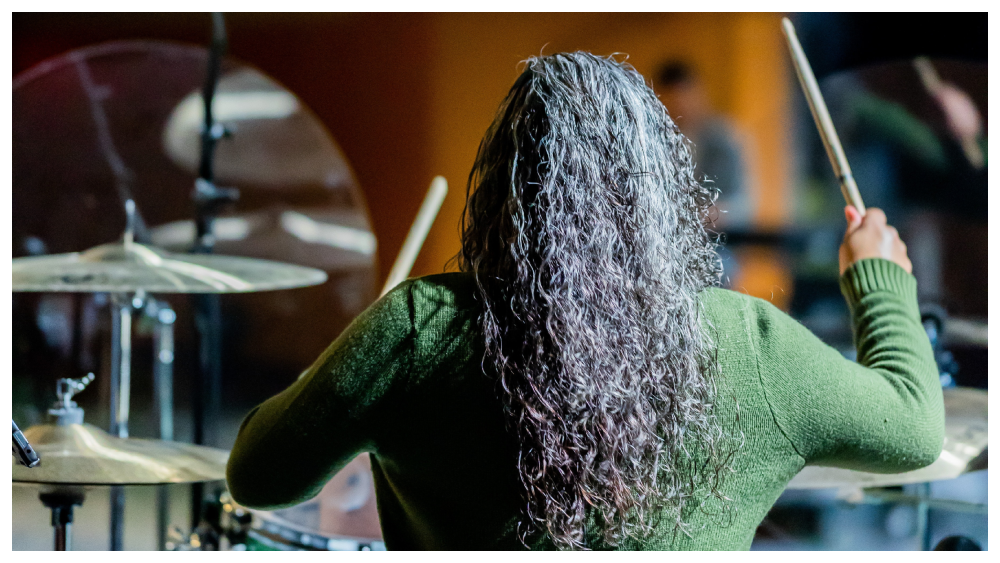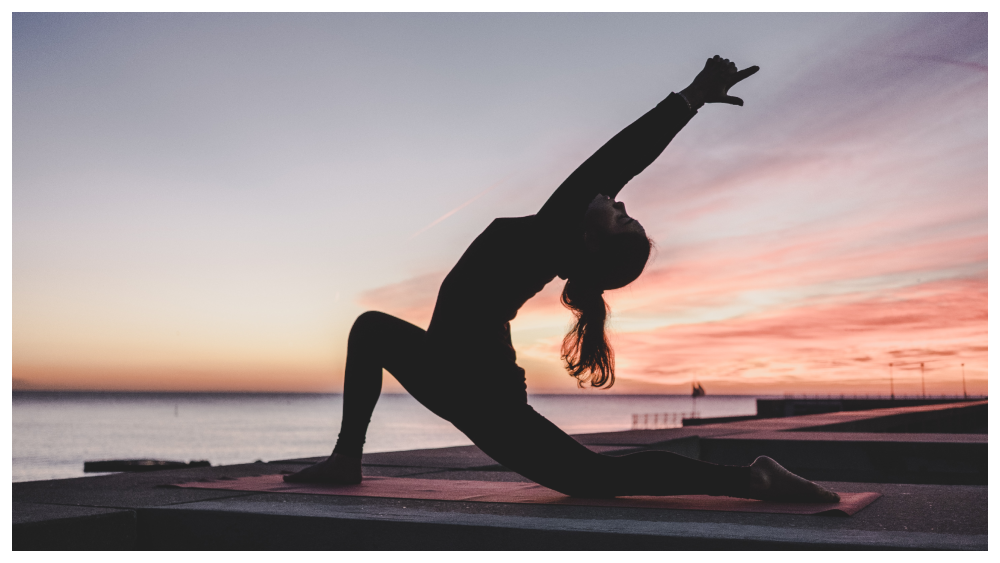At the end of January, PRS Foundation launched Power Up; a long-term plan to support Black music creators and industry professionals. Created in partnership with YouTube Music, Beggars Group and the Black Music Coalition, Power Up aims to create a fairer and more equitable music industry.
Shaped by 80 Black industry figureheads, the initiative will address anti-Black racism in music sector and support 40 Black creators and professionals per year through the Power Up Participant Programme and the Power Up Movement.
Overseeing the project is executive manager of The Playmaker Group, Yaw Owusu. Yaw began working with PRS Foundation in August 2020 as a programme consultant before taking up a senior management role.
With the application process for the Participant Programme now open, M caught up with Yaw to find out more about Power Up, why it was launched and who it could benefit the most.
Maya: Tell me a bit about your background and how you ended up working in the music industry.
Yaw: I went to university and studied law, but had dreams to go to America to play basketball at university level. I played to quite a high level in the UK, but got injured in my last year of uni so I finished my degree and came back to Liverpool. My cousin, who’s originally from East London, had moved up to Liverpool and he was doing a couple of shows and basically his mum (my Auntie) said: ‘Will you help him because you’re organised?’
I managed what he was doing and he started getting a bit of national recognition so more artists wanted to work with us. We worked on developing artists, delivering workshops and making documentaries under our first business, URBEATZ.
I’ve always walked the line between a purer view of music and music culture and the commercial space. That’s still at the heart of what I do.
I’ve worked on projects for brands, organisations and artists but storytelling is always at the centre. I like David and Goliath-type projects.
Maya: How did you end up working with the Foundation? You came on as programmes manager at first and now you’re working on the Power Up initiative?
Yaw: I run a talent development project for Liverpool City Council called the LIMF Academy. We applied for the Open Funding and got that, and then the following year, we were part of the first year of the Foundation’s Talent Development network, so I’ve known the Foundation for years.
Joe Frankland, PRS Foundation’s chief executive, rang me and told me all about Power Up and I ended up coming on board as a consultant and then in November, he said, ‘We’re going to open up a senior manager role. Are you considering it?'
One thing led to another and now I’m a senior manager for Power Up. It still feels weird when I say it. The role allows me to work across PRS Foundation to make sure that we’re not just doing Power Up in a silo but thinking about their approach and their execution across the board. So yes, it’s been a nice growing relationship with the Foundation.
'Fundamentally we just want to see a richer, more diverse, more equal and more reflective industry. That’s what Power Up’s about.'
Maya: For those who aren’t yet aware, what is Power Up and who has it been created for?
Yaw: Power Up is built for Black music creators and Black industry professionals in the UK music industry. It's for those that are or have been hitting glass ceilings, whatever their field. It’s about supporting them so they can break through those ceilings and reach their full potential. That’s its core, but overall, we want to see change within the UK music industry, so as well as the participant programme - which supports the 40 music creators and the industry professionals every year - we’re creating a movement that will make the industry a more of a viable space for these individuals.
It all comes down to equality. The Foundation has always been great, especially when tackling gender inequality in the industry, and fundamentally we just want to see a richer, more diverse, more equal and more reflective industry. That’s what Power Up’s about.
There are some micro actions and then there are some macro actions. The difference between this programme and others is the realisation that you can’t just fund the creators and assume that the systems will change. You've also got to put people in position to change the system.
Maya: To what extent would you say that Power Up is a response to the Black Lives Matter protests and the murder of George Floyd last summer?
I think the tragedy of George Floyd and Black Lives Matter movement have just sped up the process for us to go: ‘Okay, we need to do something specifically.’ But I don’t think the founders, Ben Wynter and Joe Frankland, just woke up that day and said: ‘Oh, we need to do something about this,’ they were already doing something. I think it was just about, ‘Okay, well we may need to offer a specific solution everyone can get behind.’
I think everyone needed a horse to bet on and thought 'What’s the best vehicle to get this done?' I believe Power Up is the best vehicle to get done what needs to be done in the UK music industry, alongside some of the other projects and initiatives that people are working on.
I think the Black Lives Matter movement and the momentum from it allowed Ben and Joe to galvanise people and to begin launching something that had been years in the making.
Maya: Black Out Tuesday was obviously a direct response to the death of George Floyd. I was just wondering what you thought about that as a campaign and whether you thought it did serve its purpose, which was to command attention.
Yaw: I think there’s a danger of some of this ‘activism’ coming across as performative, as opposed to sincerely trying to change for good.
But I do believe that for the most part, people’s hearts were in the right place and people realised that something needs to change. I think that’s amazing. It felt unified and important.
There are definitely organisations guilty of posting black squares as a gesture but not following it up with the work that needs to be done. That’s one of the reasons I wanted to get involved in Power Up. This is something that is going to change the game.
Maya: I think it’s fair to say that the music industry nurtures institutional racism. I was wondering whether you can give any specific examples of that kind of systemic prejudice that exists that people tend to normalise on a day-to-day basis?
Yaw: Do you know what? There are so many. I was on a call on Friday with promoters, Black promoters, and they were talking about trying to book venues. One guy had an African name and he tried to book a prestigious venue. He had the money, he had the right type of artist for the venue, but he rang and he left a message. They didn’t get back. He rang again and they said, ‘The date’s gone.’ He was, like, ‘Hmm, when I rang the first time someone said they’ll call me back. The date wasn’t gone but you said you’d call me back.’ Anyway, so he rang up and changed his name to something more British-sounding and the date was free.
You hear about this stuff all the time, so many through the focus groups we held. Everything from Black music artists and professionals not being offered the same budgets as their white counterparts, the colourism that takes place in addition to the racism. There are a million stories and there are a million things that I’ve experienced. I’m at a vantage point where I’m seeing people that may not know each other well but they’re all actually dealing with the same thing, and this is going on. It’s going on a lot.
Sadly, there’s trauma attached to all of this. When we were doing these focus groups people were talking about these things they’d buried or were trying to cope like it didn’t exist. The scary thing is these are so frequent, and time hasn’t changed it substantially. There are too many and it is normalised because it’s accepted.
The problem you’ve got with Black music creators and Black industry professionals is that because there’s the perception of success or visibility in mainstream culture, people don’t believe that the anti-Black racism is still an issue.
There aren’t many documentaries or documents or reports on what’s gone on and is going on. If people could see the full extent of what goes on and how it’s normalised, I think they would be shocked.
'I think it’s crazy that in organisations there are individuals who are worthy of success, who are worthy of getting something that reflects what they’ve put in, who go in and know that they’re going to have horrific experiences in their careers.'
Maya: It certainly feels like only recently people have really started talking about at how few Black execs sit on major music industry boards and the disparity between those making the music and those making the decisions. What are your thoughts on that?
Yaw: That’s the influence there isn’t it? You can be junior and come up with a great idea but who sets the budgets? Who decides what things you’re going to align with? Again, I think when you talk about the experience of Black professionals, whether they are creative or non-creative in the UK music industry, that’s very much a determinant factor of their experience. How understanding are those senior executives?
I’m not saying all execs have to be Black for you to be treated correctly, that’s just false. I’m saying there’s a nuanced experience and understanding of Black culture and if you’ve been through those things you will be a lot more understanding and you’ll get the best out of those individuals. That will then help your team, which will help your organisation.
I think it’s crazy that in organisations there are individuals who are worthy of success, who are worthy of getting something that reflects what they’ve put in, who go in and know that they’re going to have horrific experiences in their careers. People who just want to do well but have to carry that baggage with them.
It’s wrong that it’s gone on for this long. We’ve got to get to a point where we’re not going to be having conversations like this.
Maya: What will Power Up actively do to challenge this kind of systemic racism that we’ve all become so accustomed to within the industry?
Yaw: As one of our ambassadors mentioned, if we’re individually great then that’s always going to change the system, but outside of that we recognise that we’ve got to push for change. Working in partnership with the Black Music Coalition, we’ve got the movement side of Power Up, which is designed to tackle the more systemic issues. So, do we look at how Black organisations and individuals are funded? How do we work with the BMC on their challenge to the major label systems? How do we make sure we’re looking at why people aren’t getting promoted at certain points?
How do we work with our partners to do that as well? A lot of the partners who are involved are not saying they’re perfect, they’re saying, ‘We want to get better,’ so it’s how we work with them.
Again, PRS Foundation are great on it. Look what they’ve done in the festival space with Keychange. It’s unbelievable that just by having the right approach, using data and using people’s experiences to design that approach, they change systems. It will change experiences for people on an everyday basis. I think we’re taking that into this space and hopefully we’ll see real systemic change in the next five to ten years.
Maya: And how crucial do you think it is that the whole music industry engages with Power Up, and can it work as well as it’s designed to if the whole music industry doesn’t get on board?
Yaw: I think it’s a gradient isn’t it? I think if, and it’s been shown, PRS Foundation can work on these grants programmes with music creators and individuals and organisations without the industry being involved it will still make a positive change. That’s factual. There are people who have gone on and who have grown in their careers and organisations that have grown because of what PRS Foundation’s done over the last 20 years.
If the industry engages, it will be even stronger. We’ll be helping to funnel a lot of that energy and that passion and that strategy through their organisations and meeting them where they are.
Power Up is Black led, there’s a Black executive steering committee, we’ve got the focus groups, we’ve got people like Ben [Wynter] with lived experience and driving this with his passion and his vision, and Joe [Frankland] who actually understands it in an amazing analytical, strategic and granular way. You add all these things together and if the industry buys in, it will help everybody.
I keep saying to people, ‘Who would not want equality in their organisation? Why is that a mad thing to think about?’ We want this person and this person and this person to have the same opportunities and be treated the way they deserve to be treated, based on what they do. That can only happen if the industry all jump onboard, we all go together in the same direction in order to make the same change. We’re not going to agree on every little detail but we all go forward, work together, solve this problem, move on to the next challenge.
'We’ve got to be what we say on the tin. This is about making things better for Black people who are facing barriers in the UK music industry.'
Maya: Speaking of challenges, what are the kind of difficulties you’re expecting to face as the programme develops?
Yaw: We don’t want anyone to feel that Power Up is going to come and try to do everything. I think what we tried to do very early on was speak to as many people and organisations as possible and have an open door. We want to be a part of the movement as well as leading in certain areas that we are best to lead on. I think it’s paid dividends so far. I believe the engagement shows that. Look at the steering committee or the focus groups. We have over 80 Black industry professionals coming to together in focus groups saying ‘Even though this is not necessarily for us, in the short term we just want to see the industry better, so we’re passing over our information, our experience and our ideas’.
Maya: Who should apply for the Power Up Participant Programme? What they can expect, and do you have any tips for anyone that may be on the fence about putting themselves forward?
Yaw: The Power Up Participant Programme is for Black music creators and industry professionals within the UK Music Industry, any genre, gender, speciality. It's all about helping exceptional talent get through those glass ceilings in their careers, created in part by their ethnicity.
It’s not for people who have just started out in the industry, it’s not that level, it’s people who have gone a little bit further and are trying to break through and maybe not hitting the senior level, or not being able to meet their potential. They’re the people we want to work with and they’re the ones who should apply.
Music creators can receive a grant of up to £15,000 and for industry professionals it’s up to £10,000, so make sure you’re at a point where you can spend that wisely. A big part of what we’re doing is a programme of development which will include lots of bespoke activities, as well as the development of a network made up of all 40 participants. We want to see people who are going to contribute to the network.
Maya: What are your key focuses with Power Up in 2021?
Yaw: From a programme managerial standpoint, right now, I’m very much focused on the experience of the participants at this stage. We’ve got to be what we say on the tin. This is about making things better for Black people who are facing barriers in the UK music industry. So that’s my focus, and I believe that anyone who’s not on board will come on board very quickly once they see what we do. For those people who have got on board, I think they’ve seen and know what PRS Foundation can do, but can also see that what we’re trying to do is very achievable with the people we’ve got involved.





